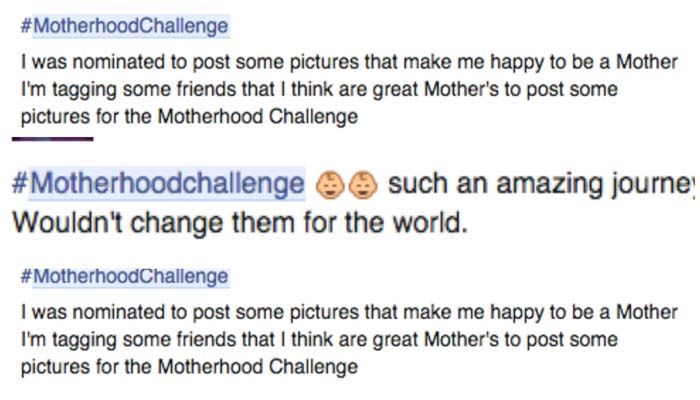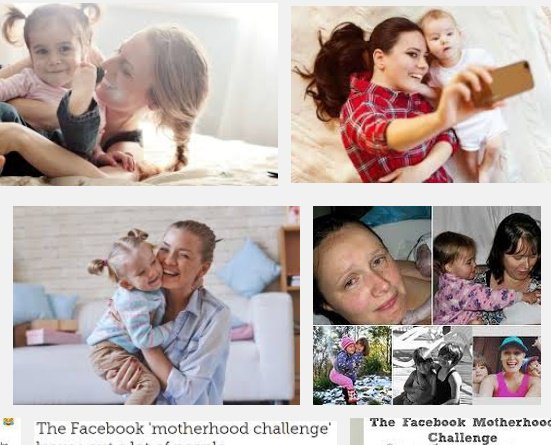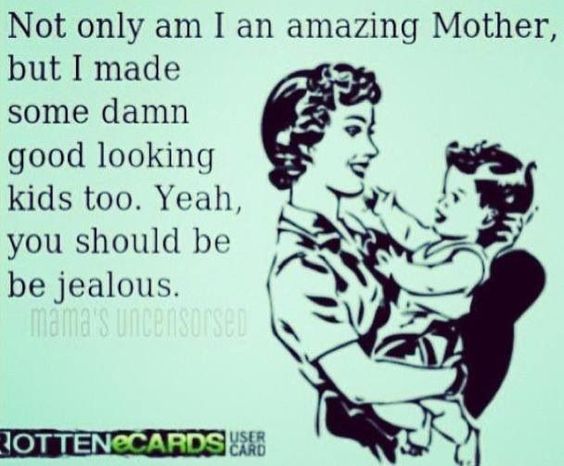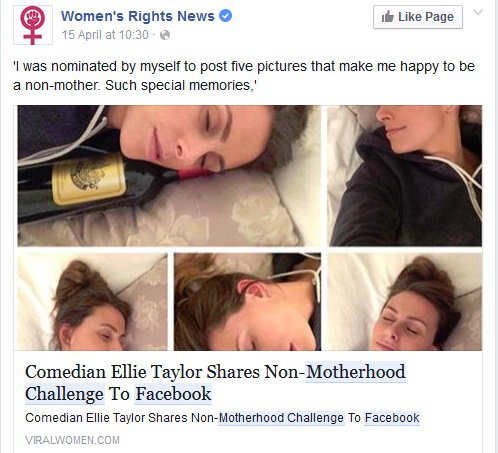We are constantly being tagged and challenged to post photos, share stories and make observations / lists via various social media movements that constantly sprout up around us. Basically it’s a new challenge each day on FB. While some fizzle out, some really catch on. One of these recent challenge phenomena is the Facebook Motherhood Challenge or the Motherhood Dare; something that many women joyfully dived into; something however, that made more women feel inadequate, unfortunate or unhappy. Here’s how the Facebook Motherhood challenge pans out.
What is the Facebook motherhood challenge?

The Facebook Motherhood challenge calls on women to post five pictures that represent what they love about being mothers and pose the challenge in turn to five women whom they think of as awesome mums. The idea was to laud mothers everywhere because being a mother is a difficult job; which it is without doubt. So of course we were all flooded with pictures of beautiful toothless infants, adorable first steps, precocious little ones doing their first ever selfies, mother bonding pics and other instances of beatific and picture perfect motherhood. All good and fine so far; a bunch of women sharing their happiness! Lovely!
The motherhood smug-fest

For many, this became an orgy of self congratulation; a way to parade their perfect, happy, shining children before the world and a way to include PLU (people like us) in the whole smug-fest. Soon however, the challenge became about who was not being tagged: single women, women without kids (either because they could not have kids or didn’t want kids) and worst of all, mothers! For women who could not have kids it was sympathy, for women who chose not to have kids there was a smidgen of self righteous disapproval and the feeling of superiority.
The problem here was that while celebrating motherhood (innocuous in itself) the challenge, perhaps inadvertently, perhaps maliciously excluded so many women. It made women feel as though motherhood was essential and somehow central to being a woman. In short a huge number of women were made to feel inadequate and incomplete either because of the choices they had made or because of biological realities.
“But I was not tagged!”

Mothers who weren’t tagged were assailed with self-doubt: am I not a good mother? Am I inadequate in some way? Are my kids not pretty/well behaved/worthy/happy/photogenic/ talented enough? Are only super-beings who cook perfect meals, are intuitively brilliant child rearers and who keep it all together invited to the party? Come to that I myself was never tagged! Gasp! I must be a terrible mother!
Meanwhile; the acerbic, sarcastic, non-mother response

She really does look happy!
Author – Reena Daruwalla





